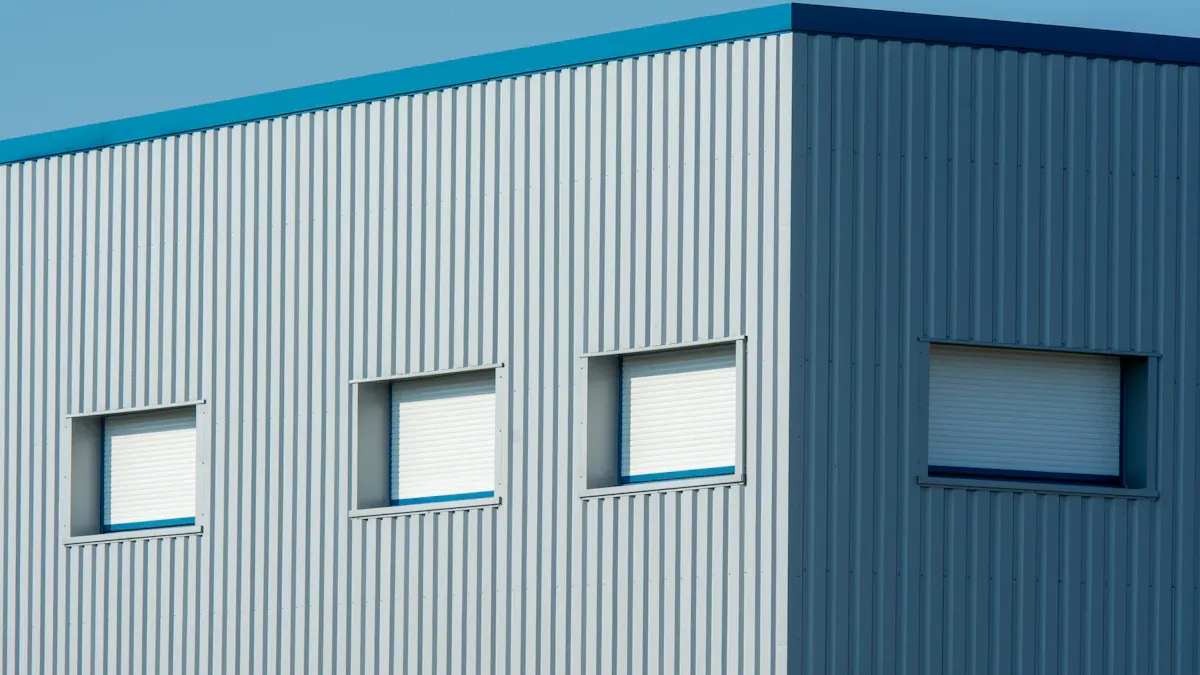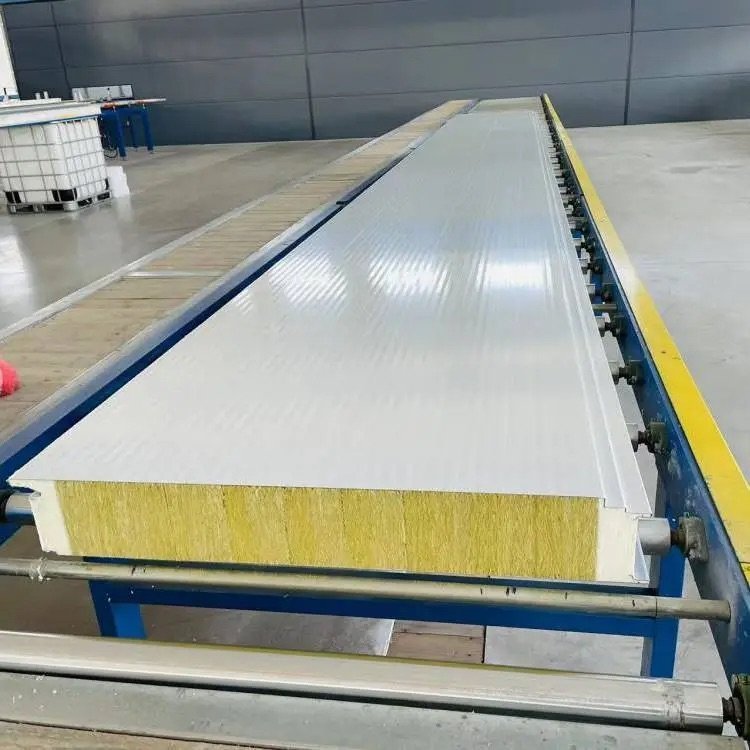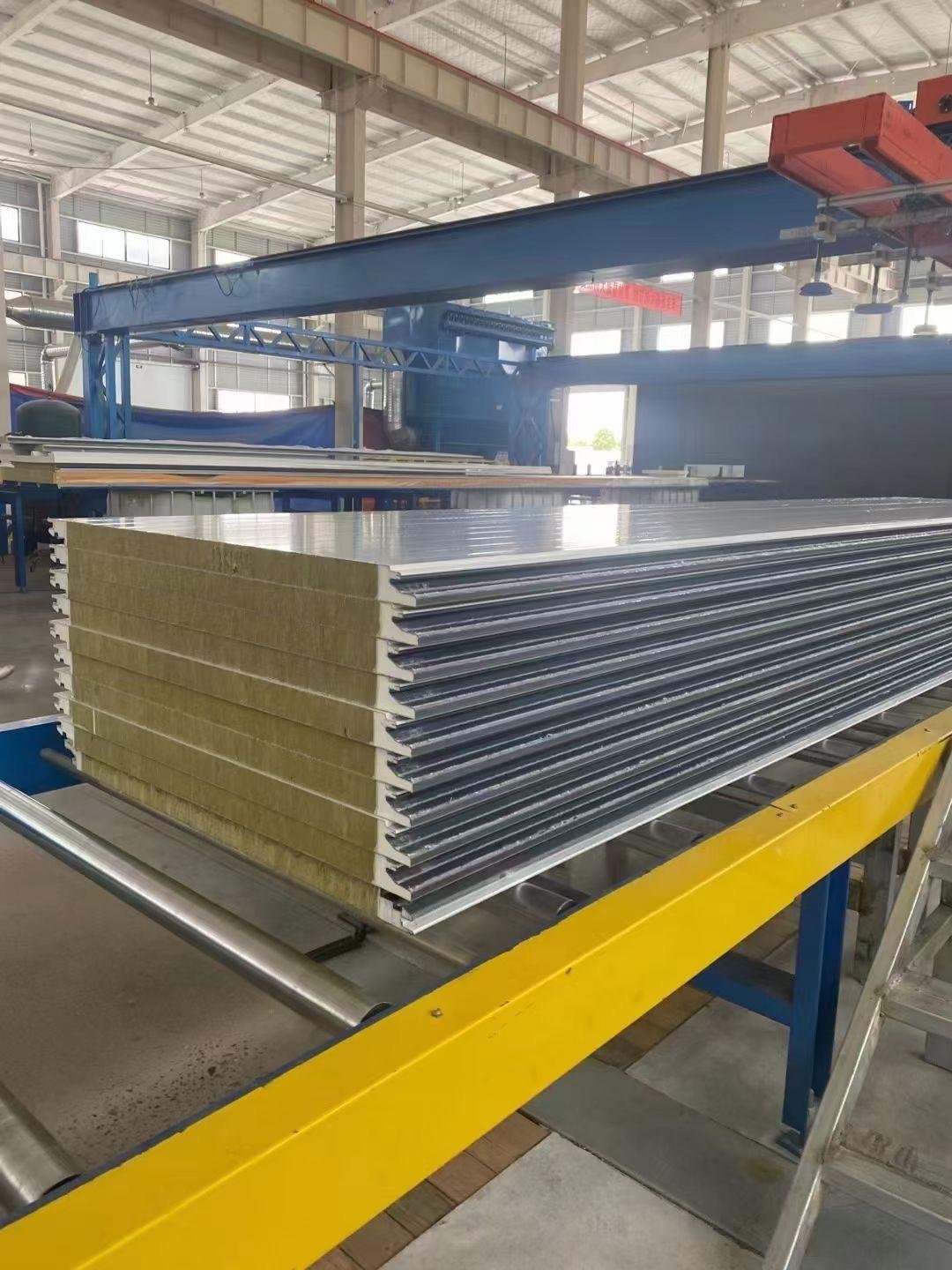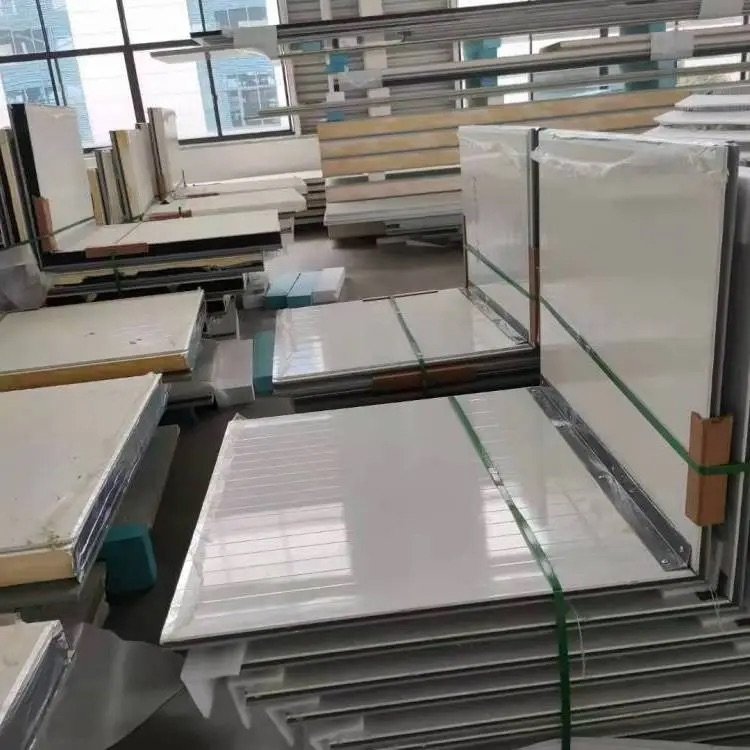Rockwool sandwich panels are great for making cold spaces. They are strong and can handle heavy loads without breaking. These panels keep the cold in and save energy. Rockwool does not burn, so it improves fire safety too. This makes it perfect for food or medicine storage. The panels also block moisture, keeping cold spaces in good shape.
Key Takeaways
Rockwool panels keep cold rooms cool and save energy costs.
These panels are fireproof and can handle very high heat, making them safe for cold storage.
They stop moisture and mold, keeping the storage area clean.
Rockwool panels are strong and last long, so repairs are rare, saving money.
Food, medicine, and shipping industries use them to keep products fresh and safe.

Understanding Rockwool Sandwich Panels
Composition and Structure
Rockwool sandwich panels are made from melted rocks and steel waste. These materials are turned into fibers and pressed into a core. The core is placed between two metal sheets, like steel or aluminum. This design makes the panels strong and great for insulation. About 75% of the core is steel waste, and 25% is rock. This mix is eco-friendly and good for the environment.
Key Properties (Thermal, Fire, and Acoustic Insulation)
These panels are great at keeping spaces cold. They stop heat from entering, saving energy and money. Their thermal resistance is 1.2m²K/W, and they don’t burn. They can handle heat over 1000°C, making them very safe. They also block noise, keeping spaces quieter. This is helpful in homes and businesses.
Common Applications in Construction
Rockwool panels are used in many building projects. They work well for walls, roofs, and cold rooms. They are light, so they are easy to install. This saves time and money. Schools, hospitals, and offices also use them. In cities, they help reduce noise pollution. They last a long time and resist moisture, making them perfect for cold storage.

Key Features of Insulated Cold Storage Panels
Why Thermal Insulation Matters
Thermal insulation helps keep cold rooms at steady temperatures. Insulated panels stop heat from entering, saving energy. They create a tight seal to keep the cold inside. This helps food and other items stay fresh longer.
The R-value shows how well panels block heat. For cold storage, an R-value of 25 or more is best. Thicker panels insulate better, lowering cooling costs. The Department of Energy says better insulation can save up to 30% on energy bills. This makes these panels a smart choice for cold storage.
Fire Safety Features
Fire safety is very important for cold storage panels. Rockwool panels are safe because they don’t burn. They can handle heat over 1000°C, adding extra protection.
These panels are tested to meet fire safety rules. Tests like ASTM E84 and UL 723 check their fire resistance in small buildings. Bigger tests, like Factory Mutual 4880 and NFPA 286, check them for larger spaces. These tests prove that Rockwool panels are safe and reliable for cold rooms.
Strength and Water Resistance
Rockwool panels are strong and last a long time. Unlike some materials, they don’t bend or break easily. They resist pests, sunlight, and chemicals, staying effective for years.
Water resistance is also important for cold rooms. Rockwool panels keep water out but let vapor escape. This stops mold and mildew from growing. These panels work well in damp places, keeping cold rooms clean and insulated.
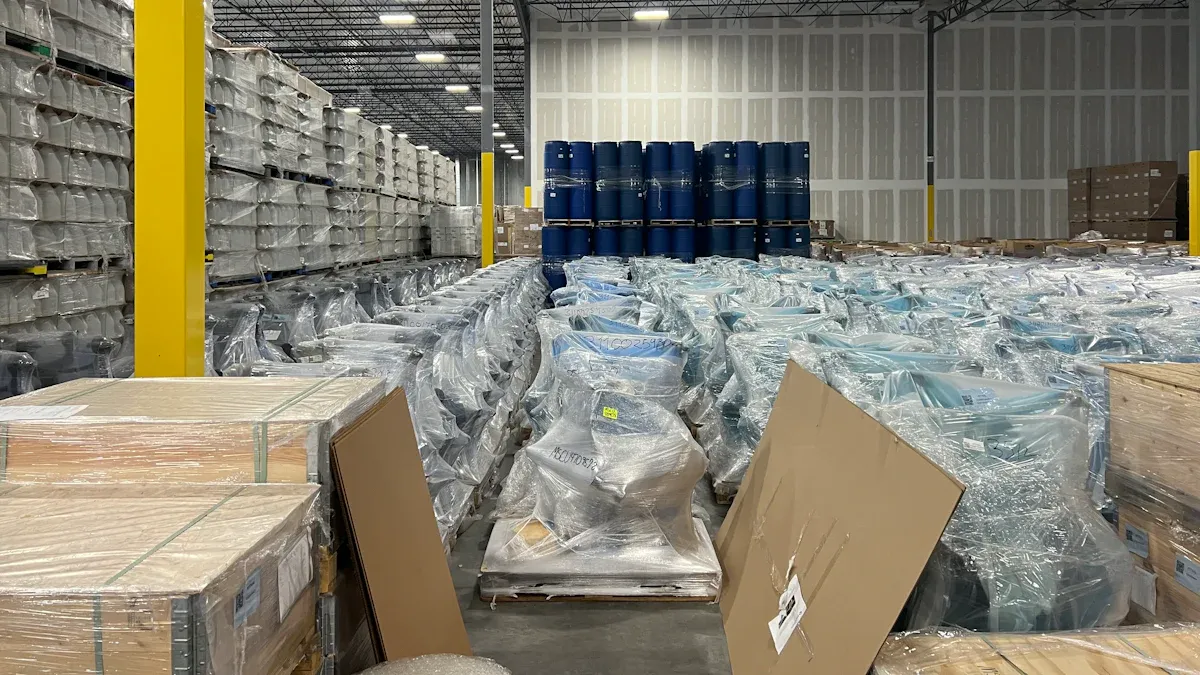
Why Rockwool Panels Are Great for Cold Storage
Thermal Insulation Performance
Rockwool panels are great at keeping cold rooms cool. They stop heat from getting in, keeping the temperature steady. Panels with 70% biomass have thermal conductivity of 0.044 W/m·K. Even panels with 60% biomass have values between 0.048 and 0.056 W/m·K. This shows they work well for cold storage.
These panels save energy by reducing the work of cooling systems. This lowers energy bills while keeping the room cold. For food and medicine storage, this is very important to keep items fresh and safe.
Fire Resistance and Safety
Fire safety is very important for cold storage. Rockwool panels do not burn and are rated category A. They can handle heat over 1000°C, making them great for fire protection.
Feature | Details |
|---|---|
Non-combustibility | Rockwool doesn’t burn or melt, keeping spaces safe. |
High Melting Point | Can handle heat over 1000°C, ideal for fire protection. |
Fire Spread Prevention | Helps stop fires from spreading, adding safety to cold storage systems. |
Using Rockwool panels makes cold rooms safer and meets fire safety rules. This makes them a trusted choice for cold storage.
Long-Lasting in Cold Rooms
Rockwool panels are strong and last a long time. They don’t bend, break, or get damaged by pests or chemicals. They also stop water from building up, keeping cold rooms clean and dry.
The panels let vapor out but keep water from getting in. This stops mold and mildew from growing. With their strong design, Rockwool panels stay reliable and work well for years in cold storage.
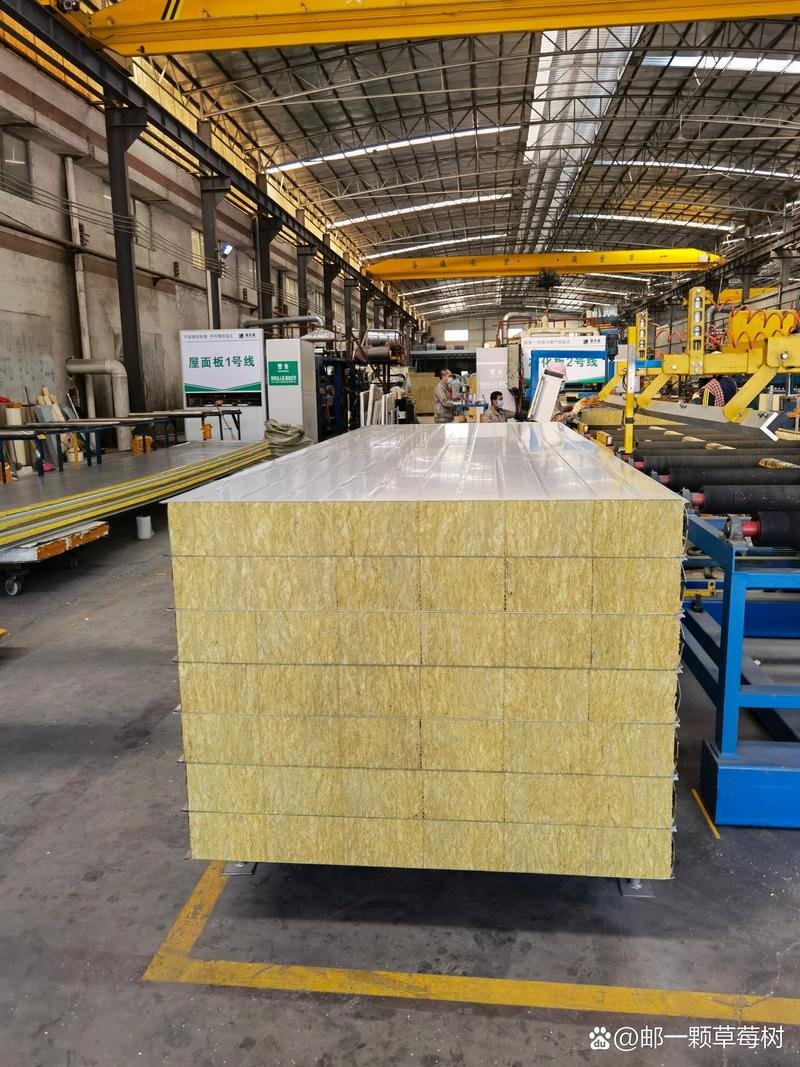
Comparing Rockwool Panels to Other Cold Storage Materials
Rockwool vs. Polyurethane (PU) Panels
Rockwool and PU panels work differently for cold storage. PU panels are better at keeping spaces cold. Their thermal conductivity is 0.025–0.028 W/m·K, which is lower than Rockwool’s 0.041–0.045 W/m·K. This means PU panels save more energy in cold rooms and warehouses.
But Rockwool panels are safer in fires. They can handle heat up to 1000°C without burning. PU panels, even with fireproofing, break down in high heat. If fire safety matters most, Rockwool is the best choice. PU panels resist water better, while Rockwool can weaken if it gets wet. For places with changing temperatures, like factories, Rockwool works better. PU panels are great for eco-friendly homes and refrigerated spaces.
Rockwool vs. Expanded Polystyrene (EPS) Panels
EPS panels are light and insulate well, but not as well as PU panels. Their thermal conductivity is 0.032–0.038 W/m·K. Rockwool panels don’t insulate as well as EPS, but they are stronger and safer in fires. EPS panels can melt and release harmful fumes during a fire, making them less safe for cold storage.
Rockwool panels also last longer and resist pests and chemicals better than EPS. If you need a strong and safe panel for cold rooms, Rockwool is a good choice. EPS panels cost less and work well for smaller projects that don’t need as much durability.
Cost-Effectiveness and Long-Term Benefits
Rockwool panels cost more at first but save money later. They last longer, need less fixing, and are safer in fires. PU and EPS panels are cheaper upfront but may cost more over time. They don’t last as long or resist fire as well. For cold storage, Rockwool panels are reliable and safe, making them worth the investment.
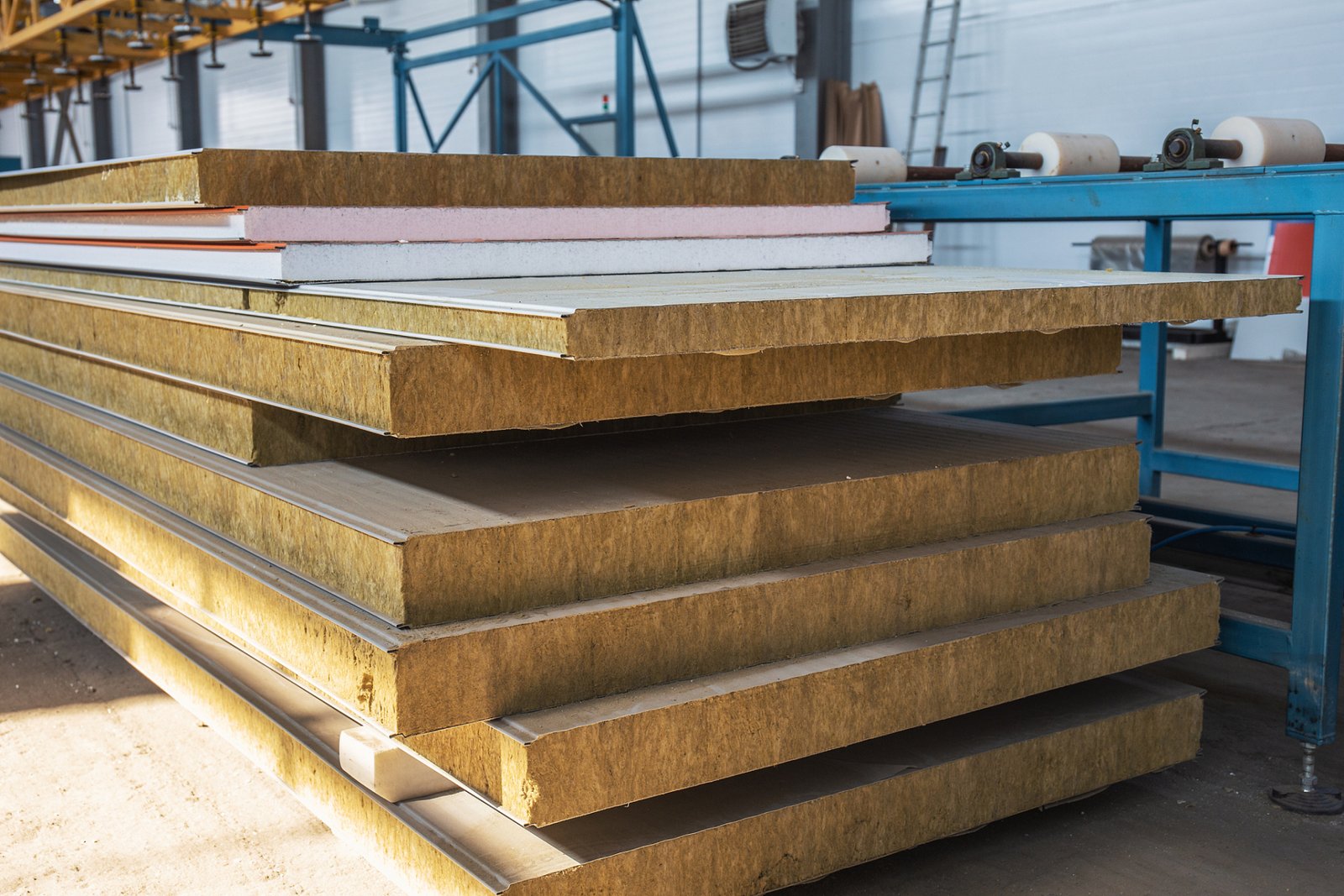
Practical Applications of Rockwool Panels in Cold Storage
Industries Using Rockwool Panels
Rockwool panels are used in industries needing temperature control and safety. They help keep perishable goods and sensitive items in good condition.
Food companies use these panels to store fruits, dairy, and meat. One company saved 25% on energy bills after upgrading their cold room.
Medicine warehouses use these panels to store vaccines and drugs. They keep temperatures steady, meeting strict safety rules.
Shipping companies use insulated panels in cold warehouses. This improves energy use and keeps products fresh during storage and delivery.
These examples show how Rockwool panels improve safety and efficiency in many industries.
Case Studies of Cold Room Projects
Real-life projects prove Rockwool panels work well for cold storage. A food company upgraded its cold room with these panels. This saved energy and kept products fresh longer.
In another example, a medicine company added Rockwool panels to their cold floors and walls. This kept vaccines at the right temperature and met health rules. These cases show Rockwool panels are reliable for industries needing cold storage.
Installation and Maintenance Tips
Installing and maintaining Rockwool panels correctly helps them last longer. Follow these tips for safe and effective use:
Tips and Description | |
|---|---|
Wear Safety Gear | Use gloves, goggles, and masks to stay safe. |
Work in Ventilated Areas | Good airflow reduces dust in the air. |
Cut Panels Carefully | Use special tools to reduce dust; avoid dry cutting. |
Seal Edges | Add sealant to edges to stop fibers from escaping. |
Store Panels Properly | Keep them dry and covered to avoid water damage. |
Regular care is also important. Clean panels to remove dirt and dust. Check for damage or water issues, especially in cold spaces. Taking care of panels keeps them working well for years.
Rockwool sandwich panels are a dependable choice for cold storage. They keep cold rooms energy-efficient by stopping heat from entering. These panels are fireproof and block moisture, making them safe and long-lasting. Over time, they save energy, which helps industries save money. EPS panels may cost less upfront, but Rockwool panels last longer. They keep temperatures steady and protect items like food and medicine. This makes them a smart option for businesses focused on safety and efficiency.
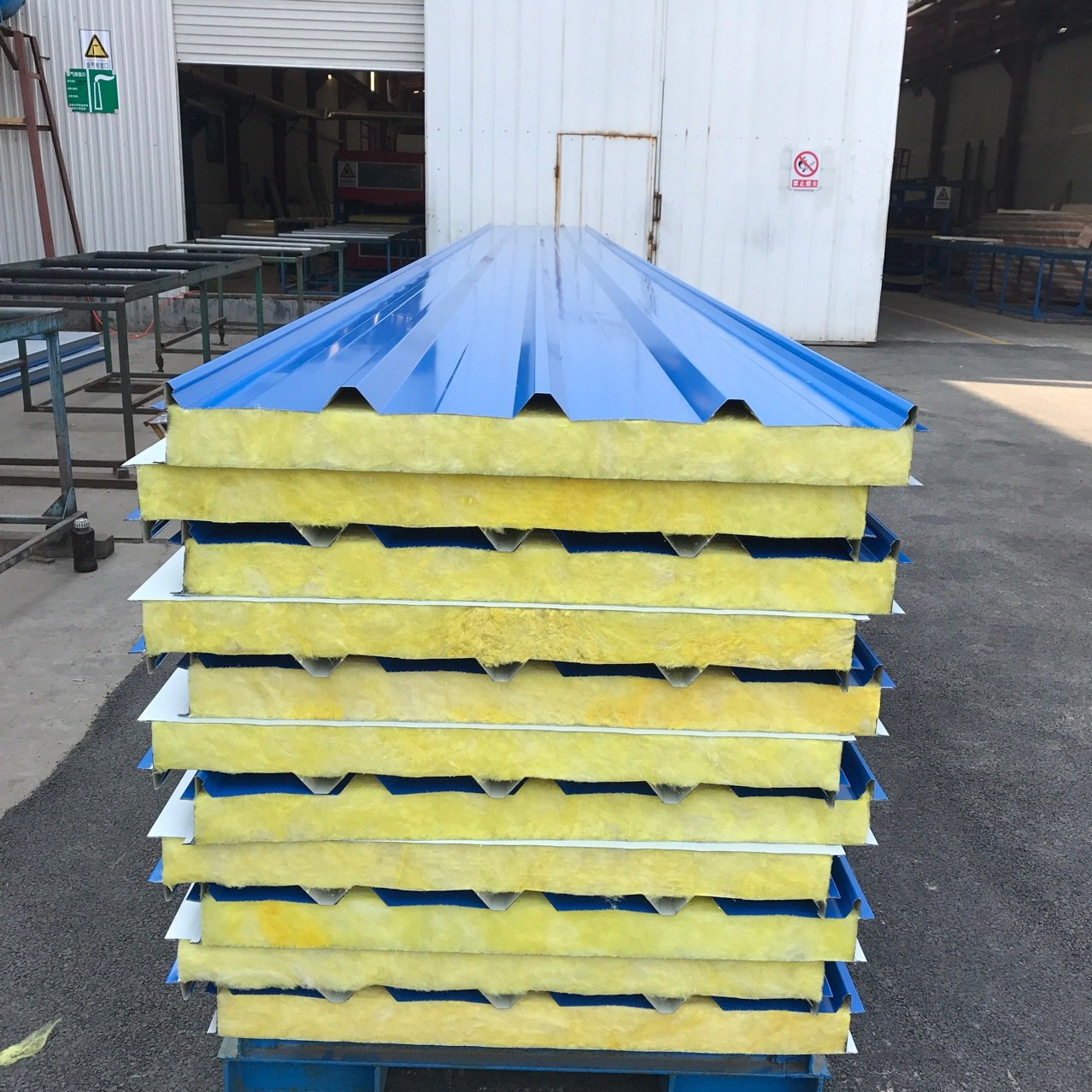
FAQ
Why are Rockwool panels good for cold rooms?
Rockwool panels keep cold rooms at steady temperatures with great insulation. They also resist fire and water, making them safe and strong. These qualities make them a trusted choice for temperature-controlled spaces.
How do Rockwool panels compare to other materials?
Rockwool panels are safer in fires and last longer than most. PU panels insulate better, but Rockwool is stronger and fireproof. This makes Rockwool better for cold rooms where safety matters most.
Can Rockwool panels stop moisture problems in cold rooms?
Yes, Rockwool panels block water and let vapor escape. This stops mold and mildew, keeping cold rooms clean and working well. Their water resistance helps them last in damp places.
Are Rockwool panels energy-saving for cold rooms?
Rockwool panels stop heat from entering, helping cooling systems work less. This saves energy and keeps the room at the right temperature. Over time, they cut energy costs while keeping things cool.
Which industries use Rockwool panels in cold rooms?
Food, medicine, and shipping industries use Rockwool panels a lot. They help keep food fresh and medicines safe by keeping cold rooms at the right temperature.

